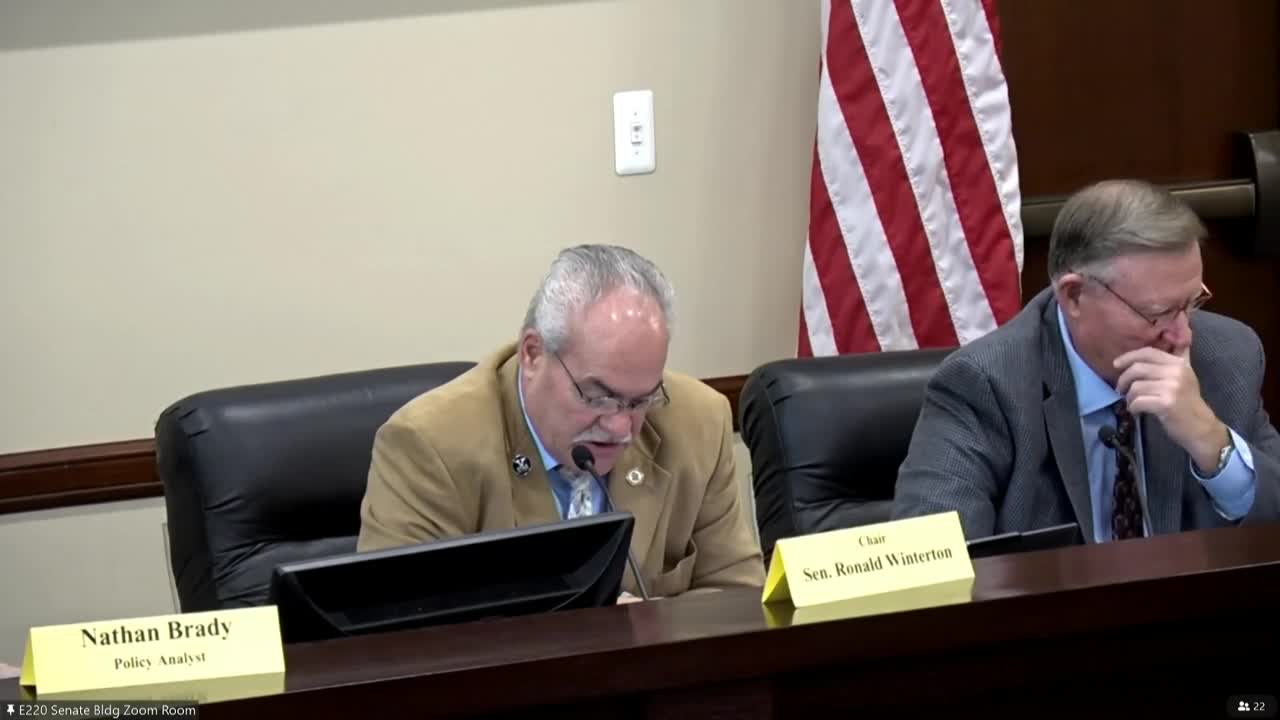Committee endorses framework bill to study state‑endorsed digital identity, emphasizing privacy and no‑surveillance guardrails
Get AI-powered insights, summaries, and transcripts
Subscribe
Summary
The committee voted unanimously to favorably recommend Senate Bill 260, which sets policy statements and tasks the Department of Government Operations to study options for a state‑endorsed digital identity while prioritizing individual control, privacy, and prohibiting surveillance in use of the credential.
The Senate Government Operations and Political Subdivisions Standing Committee voted unanimously to favorably recommend Senate Bill 260, which establishes principles for any future state‑endorsed digital identity program and requires the Department of Government Operations to study implementation options.
Senator Cullimore/Colomore (sponsor identified in transcript as Senator Colimore) introduced the bill and turned the presentation to Christopher Bramwell, the state’s chief privacy officer, who said the measure is a forward‑looking framework that keeps the individual at the center of identity and requires strict security, privacy and use standards. Bramwell said the bill “does not create a state endorsed digital identity” today but requires study and recommendations so any future program would be built on privacy, security and individual control.
Witnesses from the private sector and state technology leadership spoke in favor but urged caution. Timothy Ruff, an industry expert in digital identity, said the bill “largely accomplishes” privacy objectives but recommended removing any latent surveillance capability so the program could not be turned into a tracking mechanism in the future. Steve McCown, a member of the Utah Bridal Commission with cybersecurity experience, and Alan Fuller, the state CIO, also supported the bill and emphasized the urgency of establishing privacy‑protective standards given other states’ digital‑identity work.
Provisions discussed include a policy statement that an individual’s identity is personal and not created by government, that no person can be coerced or penalized for not adopting a state‑endorsed digital identity, protections that allow guardians to act on behalf of minors while ensuring control transfers at adulthood, and a prohibition on surveillance when the credential is used. The CIO noted some states keep detailed logs of credential use — a surveillance mechanism the state does not intend to replicate.
The committee moved and carried a favorable recommendation (motion by Senator Vickers announced as unanimous). Presenters said the bill will require further work on privacy technicalities and that earlier legislative appropriations and pilot funds will cover study work; Fuller said the bill should not carry a fiscal note.
